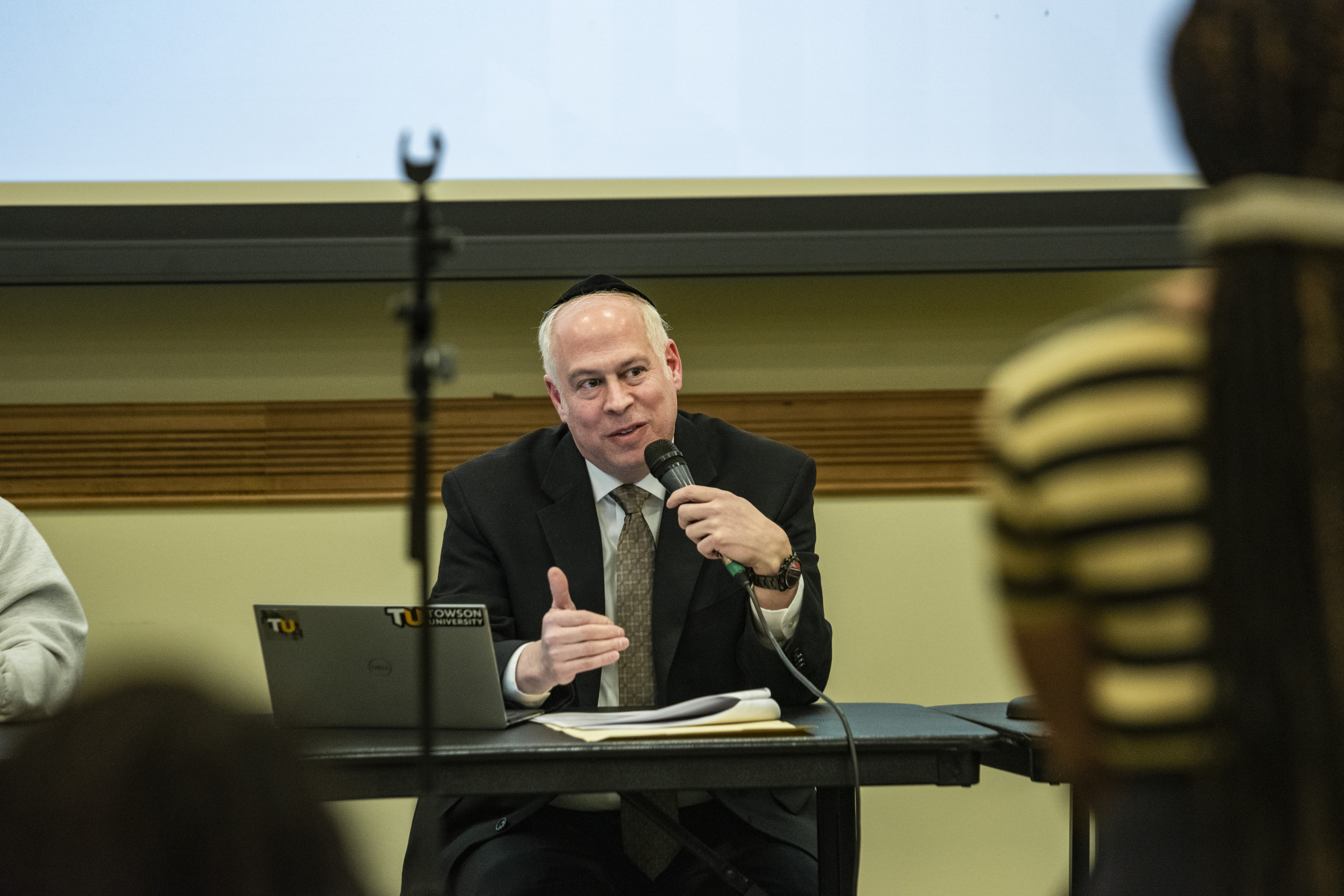
Towson announces fee proposals, including some increases
By: Keri Luise, News Editor
Photo by Brendan Felch
Towson University’s Student Government Association and Graduate Student Association held a student fee forum Feb.18 to announce fee proposals, including increases in athletic fees, auxiliary services fees and room rates, with no increase to SGA fees, parking fees, or Office of Technology Services fees.
With a panel of speakers, the University addressed the process for determining proposed fee increases, including mandatory fees for all undergraduate and graduate students for the upcoming year such as fees for auxiliary services, athletics, construction, SGA, technology, housing and residential life and parking.
“At the end of the day, the reason why all of us are here is to support all of you in getting the best education you possibly can at the most efficient price,” said Ben Lowenthal, TU’s vice president of administration and finance chief fiscal officer. “Walk out of these walls and go around with success in life — that’s really all of our goals.”
Lowenthal explained some of Towson University’s overall budget as being supported by revenues rather than the state such as summer and winter programs or anything to help students on campus that is not educational.
“The only choice left [to pay for these services] is for the individual units to create a revenue so that they can balance all the expenses and provide good services to all the people,” he said.
Some of the sources for this revenue includes student fees, revenue from customers outside of the student body and bonds.
“We have operating expenses and we have capital expenses,” Ben explained. “The operating expenses are the day to day – payrolls, supplies, things that we need to operate. Facilities, like buildings and major equipment that we might have are capital expenses, we have to cover those as well. There’s not any help coming from the state of Maryland for auxiliary services, so those are capital expenses.”
According to Ben, student fees are due from all students and the goal is to ensure that fees stay reasonable.
“The expectation is that all students carry some of that burden to offset or provide revenue to the expenses,” Lowenthal said. “They are out there trying to make sure that these expenses are at their minimum, trying to find out areas and ways to create revenue, not only on the backs of the students.”
At the forum, TU’s athletic director, Tim Leonard, proposed an increase to athletic student fees, at a 3% increase for undergraduate students and a 4.4% increase for graduate students at the forum. He encouraged students to be involved with athletics going on around campus and to take advantage of their free opportunities.
“The big thing that I want to make sure everyone in this room understands is that everybody here, all students are permitted to sporting events,” Leonard said. “So, like I tell our student athletes, I encourage you to be involved, to participate and be actively engaged on campus.”
With increased mandated fees for Towson athletics, Leonard said that of their budget, over 25% stays right on campus and expenses go right back to help the overall University budget.
“We are trying to be very specific and strategic about how we use our budget and how we come to students and ask for fees,” Leonard said.
Rob Campbell, associate vice president of Financial Affairs, also spoke at the forum to discuss auxiliary services fees with service operations across campus including the childcare center, student services, and more.
According to Campbell, auxiliary services asked for a $13 increase per semester for full-time students.
“We’re covering the expenses we can,” Campbell said. “We’re only asking what we feel like we can ask for at this point and time in terms of auxiliary fees.”
TU student Fatima Sy, assistant director of marking for the Campus Activities Board, expressed concern for how auxiliary services have a deficit in fees at the forum.
“It’s complicated for us to understand where this deficit is coming from,” she said. “But like we’re trying to figure out how is it that every year, every year that I’ve been here, the fees have gone up [and there is still a deficit].”
Assistant Vice President for Student Affairs Kelly Hoover also spoke and proposed a 2.5% increase in a room rates contract since this unit cannot receive funds from the state.
“All the revenue that we generate goes back into our operation,” Hoover said. “The increase that the two and a half percent will provide for us goes into a lot of things that are mandated.”
SGA was the first University unit at the forum to propose a 0% increase to their fee for the next fiscal year.
“We’re actually looking out to pull from some of the contracts that we have that were contracted to the university with and possibly giving it to or sharing it with another department so that we don’t have to keep raising SGA fees and that we can have a balanced budget and give our money back to the students,” said SGA President Naimah Kargbo. “We want all of our students to feel comfortable and have a comfortable college experience without having to worry if their student group can meet the budget needs or if their student group can do X, Y and Z because they don’t have enough money.”
The University Office of Technology Services also proposed a 0% fee increase as well as parking with a 0% increase.

